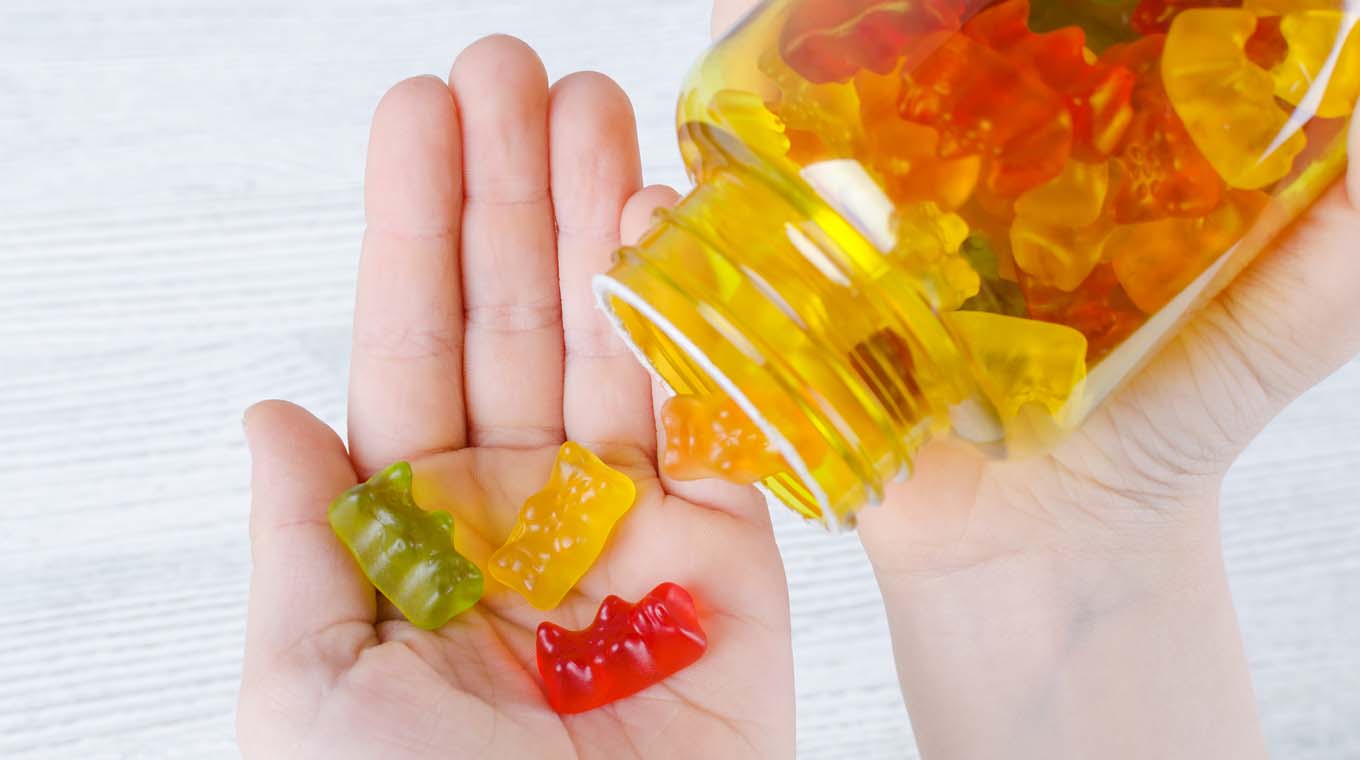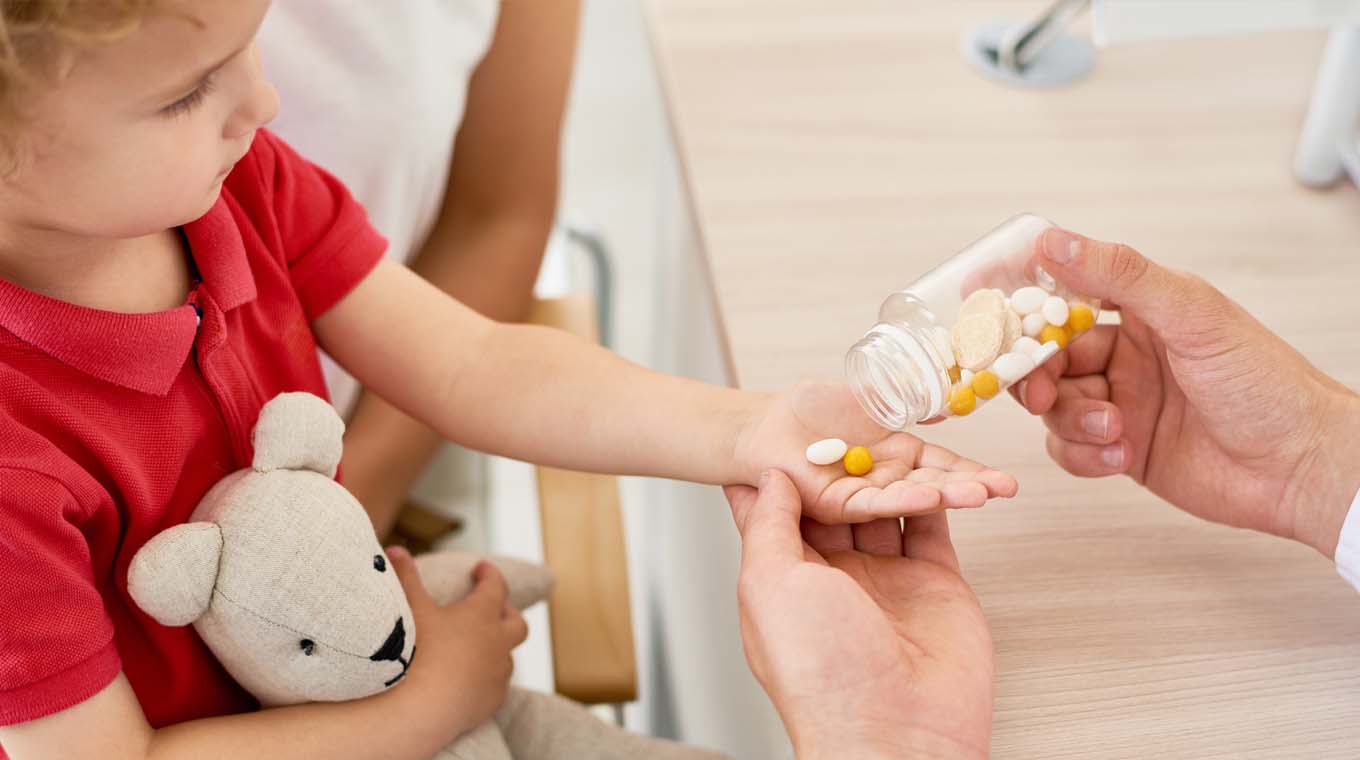
In this article
There are so many things to worry about when we become parents. The goal is to raise good humans to the best of our ability, love them unconditionally, and keep them healthy. Not as easy as it sounds. I’m constantly questioning what I should be feeding my girls, how much exercise and sleep they should get, and wondering — should I be giving them vitamins?
Growing up, we played outside until the porch lights came on, ate whatever our mom put on the table, slept and woke up when our parents told us to, and gobbled up Flintstone multivitamins like they were a treat. Also, like everything else we did as children, we had no say. I vividly remember looking forward to those chalky little dinosaurs with the weird iron aftertaste. But did we really need them?
Should I give my kids vitamins?

Kids' vitamins are not necessary for most healthy children. If your child is growing normally and hitting all of their milestones, no need to add anything. Foods are the best source of nutrients, and eating three regular balanced meals a day (and some healthy snacks) can provide all the nutrients most children need. Even if your toddler is the pickiest eater ever, that doesn't necessarily mean that they’re lacking any of the essential nutrients.
Many foods kids commonly eat, such as breakfast cereal, milk, and orange juice, are now fortified with nutrients like B vitamins, vitamin D, calcium, and iron. They are getting vitamins and nutrients in places you aren’t even considering.
Did you know that too many vitamins and minerals can be toxic? Some can interact with prescribed medications your child is taking, so always make sure to ask your doctor before giving your kid vitamins.
“If your child's doctor recommends a multivitamin, choose one that is designed for your child's age group and doesn't provide more than 100% of the daily value of vitamins and minerals,” Dr. Jay L. Hoecker wrote on MayoClinic.org. “In addition, keep multivitamins out of your child's reach and make it clear that they aren't candy.”
However, a multivitamin might be necessary for your child if he or she:
- Has a delay in developmental or physical growth
- Has chronic diseases or food allergies
- Is on a restrictive diet, such as a strict vegan diet
“I took Flintstone vitamins as a kid and I give them to my picky eater because I just don’t believe he can get all of his daily nutrients eating only chicken nuggets.” Melissa Tigu — now herself the mom of a picky eater — told Mom.com.
Which vitamins are good for kids?

Calcium
Calcium is essential for healthy bones and teeth, and can be found in dairy, salmon and dark green leafy vegetables. The calcium your child gets now helps her to build bone, which will be essential when she begins to lose bone when she’s older. Think of it like saving for college but instead, building calcium reserves for when she’s middle-aged.
B12 and other B vitamins
B vitamins are vital to metabolism, a healthy heart and nervous system, and energy. B12 can be found in meats and eggs.
Vitamin D
Vitamin D and calcium build strong bones and protects your child against chronic diseases in adulthood. Vitamin D can be found in fish, eggs, and fortified milk.
Vitamin E
Vitamin E helps make your child’s immune system strong. Vitamin E can be found in oils and nuts.
Iron
Iron helps circulate oxygen throughout your body. Iron is found in red meats, dark green leafy vegetables, and beans.
What age should my kid start taking vitamins?

I know we all want to do the best for our kids but if your kid eats a healthy, well-balanced diet, they don’t need vitamin supplements. However, infants do have different nutrient needs than older children and may require supplements. For example, some breastfed babies need a vitamin D supplement, some children who follow vegetarian diets have issues with absorbing nutrients, and those who are picky eaters may need supplements.
It’s important to ask your pediatrician if your child may require any supplementation, and always check with your child’s doctor first before administering any vitamins or supplements.




